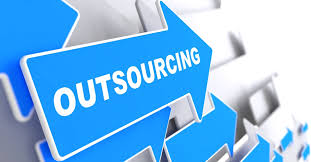The three of us need to talk; What Ofgem has not told you about British Gas’ fine.
Reading time: 4 mins
Outcome: cheaper, more accurate bills
£4.5m. Could your business deal with that fine?
The Low Down
Last month British Gas Business agreed were penalised £4.5 million for failing to deliver smart meters to their large business customers. I could tell you the differences between meters and about the art meters have inspired. However, worrying about that kind of information is only necessary for my team at The Procurement Group and me. Although, we do not focus on art! Plus, I promised I would keep the reading time to 4 minutes.
What does the penalty mean for your business?
Now to the juicy parts. Ofgem did not tell you what we often forget about our providers. Instead, we think about the huge bills our suppliers just sent and how much they charged you last quarter.
It is easy to overlook that, like you and I, they have growth targets, profit goals and infrastructure plans to meet. Penalties hit those plans. Therefore, the fundamental question to ask is ‘why did British Gas not install the smart meters?’.
The answer; to get more money from their business customers. If you do not have a smart meter, you will receive estimated bills. Suppliers overestimate, and you lose out because your business has to pay the providers more than your usage. Without smart meters, you pay more on every bill, for every site.
How does this affect your business?
Think about how much the estimated bills increase your business costs every month. Now multiply that by 12, and consider how much money you are wasting on your providers every year. Ask yourself, what could your business do with that amount of money? You could employ efficient new colleagues, fit out new sites, present improved profits to the board. However, you cannot. The suppliers have that money because they have not installed smart meters.
Are you angry? Good. Keep on reading.
How can you protect your business?
Install smart meters and get exact bills! No more estimations and no more suppliers celebrating their profits, while your business loses out. Additionally, to get smart meters in every site, just ask your supplier. The responsibility to fit the meter is on them. It will not cost you a thing.
Hang on a minute. You have almost finished this article, and you still do not know who’s having the conversation?
Smart meters have a sim that talks with a data collector and the supplier; thus, providing precise bills based on usage. It is the meter, data collector, and the supplier that must communicate with each other. To receive precise bills, the three of them must talk to each other. Naturally, providers do not want your bills to be exact. Therefore, this conversation happening is a problem our customers regularly face. So make sure they are talking by checking that your bills are accurate, not estimated.
Let’s go back to that money your business is wasting because of estimated bills. Now, let’s install smart meters at every site and ensure the communication channels are active on each smart meter.
What did you say your business could do with the money wasted? Let’s do it.
—
Simon Unger is the MD of The Procurement Group, specialising in saving your business money. If your business is spending too much, let us help you save.
Email Simon | 0800 019 3244
How to Navigate Business Telecoms Like a Pro.
According to the OECD, Britain has one of the most expensive digital networks for businesses to use. We also have one of the most comprehensive, albeit with some black spots. So, what can you do about it?
-
Use a price comparison website.
Opera singers, pole dancing builders or meerkats… what a choice! These websites are great at comparing different deals from the main suppliers. But hang on… can you use these websites for your business? Well, no. No price comparison website we’ve seen does business telecoms. So, it’s a good job that we do! No opera, pole dancing or meerkats; just comparisons presented to you simply.
-
Check this map
Is your business operational in any of the weak signal areas? If so, it might be worth checking which suppliers offer the best service in that area. However, the maps might not tell the whole story and do you really want to find that your CEO lives in a black spot after the contract is signed? We have proven, tried and tested ways to ensure that you are 100% clear about coverage in key areas before signing your contract; it’s just another component of our Intelligent Cost Reduction plans.
-
Achieve Fair Market Value
You need to make sure that you are not sacrificing your business’ telecom’s customer service, voice/data quality and payment terms to get the cheapest deal. For business telecoms, alongside the price, we recommend listing the:
-
billing cycle
-
payment terms
-
contract length
-
call connection charges
-
online billing access
-
account management
-
broadband upload/download speed
That way you can ensure your business achieves Fair Market Value. At The Procurement Group, our purpose is to help our customers achieve Fair Market Value. Our Intelligent Cost Control plans are not just about price; the plans are enshrined in a commitment not to compromise service, product quality and payment terms.
That’s it! Simple, right? Now you can navigate business telecoms like a good ‘un. However, is that enough for your business? If you want to be a pro, why don’t you navigate your telecoms as a Procurement Group client? Call Simon Unger today on 0800 019 3244 to have your free 15-minute telecoms review. Or e-mail him now!
Facts That Finance Officers Ought To Know About Outsourcing Procurement

The outsourcing of procurement can be viewed by some in finance as handing over some or all of the control over the buying processes. The opposite couldn’t be further from the truth.
The truth is that outsourcing any of your procurement functions isn’t about passing over control. It’s about bringing aboard advisors, sometimes specialist advisors whose aim is to save in the short term and the long term simultaneously.
There’s many a way a procurement specialist could advise and bring expenditure down to increase net profits, but there’s also more benefits to be realised than the initial cost savings.
5 Ways Procurement Expertise Enhance Business Functions
1) It adds a broader skill set to your organisation
When you outsource any or all of your procurement, you aren’t necessarily outsourcing every aspect of your procurement. If you have the resources internally, outsourcing adds more expertise to your existing department and also gives your staff access to other in-field experts. That can also lead to business efficiencies being enhanced, which is the sole purpose of procurement. Outsourcing can add to that, rather than replace it.
2) Bottom-Line is Improved
All your expenditure throughout your organisation is net profit. If left unmanaged or even poorly managed, stakeholders will suffer. The objective of smarter procurement exercises is to reduce the overall cost of purchasing.
3) Improved Risk Management
When done properly, after thoroughly investigating your options, you should be partnered with a professional organisation with a thorough understanding of commercial trading agreements, litigation matters and contractual expertise. They aren’t lawyers by right but they should possess a great deal of knowledge surrounding commercial contract laws, which will be able to serve you well on a professional services advisory capacity, which you may already be outsourcing anyway.
4) Add appeal to your business
Clients are known to take businesses more seriously when they have a Corporate Responsibility Policy. They make it known that they are careful where they spend, making their businesses attractive to clients and investors alike. There’s a lot to be said for how you operate your business, and structure your processes to show you are operating ethically across your supply chain. That’s difficult to do without procurement expertise to assist.
5) Frameworks can lay the foundations to your policies
Operating without a procurement framework isn’t a good idea. With one, everyone knows your policies, where they stand and the processes/channels to go through when buying anything of substance.
You don’t have to specifically bring aboard a procurement officer to implement a procurement framework, as you could approach it through outsourcing to harness the existing frameworks already used by established firms specialising in procurement.
In conclusion
Outsourcing some or all of your procurement functions isn’t just about realising cost reductions. That it will do, but it also brings about some expertise that many businesses don’t have access to and the ones that do, the additional expertise adds to it.
All of the processes work to enhance your businesses reputation, while minimising risk to your business through effective contract management and where possible, change management too, but at the heart of the process is always cost reductions. Sometimes that’s in the short-term, other times it’s the long game that’s played with a lot of strategy for huge savings across the board.
In some cases, when businesses are struggling financially, it’s a revision of the procurement functions that could essentially turn the entire businesses finances around by realising savings already missed through poor contract management or even a lack of market knowledge.
It pays to collaborate.
3 Tips For Devising An Effective Procurement Strategy

B2B sales are extremely competitive, however, for early stage and growing businesses, the buying of such services can be complex, or more so than you may have imagined anyway.
The truth is that no matter what you’re buying, you’re always going to have to haggle a bit. Bartering isn’t always about cost either. It’s about getting the most value from suppliers, while paying a reasonable amount for the value you’re offered as part of whatever service you’re buying.
To ensure you get the deserved and required value, make sure you have the following three essentials worked into your procurement strategy.
1) Use contract aggregation
When there’s a significant need in your business and you assess the market to discover there’s few suppliers large enough to accommodate what you need, it may be more effective to split your contracts into smaller lots. One of the main advantages you get with contract aggregation is you open the bidding process up to smaller sized business. This is particularly useful for working with local suppliers instead of large nationals.
It doesn’t always work out cheaper, and there will be more administration involved to oversee the contracts, however from a local economy standpoint, partnering with local suppliers can be highly advantageous.
2) Open pre-procurement discussions with suppliers
This one should be obvious but unfortunately it isn’t always done. Before approaching the market for any supplies you need, research should be done. This isn’t just a case of researching online. Get on the telephone with representatives, go out and meet some suppliers and discuss what you need, find out what’s available and gain first-hand insight into what the market has to offer.
Efficiently researching the market by opening pre-procurement discussions will let you find out a lot more about what’s available and then use factual information to put together your written brief for inviting proposals from potential suppliers.
The more information you have and therefore can give, the more detailed an offering you can put out for tendering, leading to more informative bids from suppliers.
3) Award contracts based on quality of proposals and cost
One of the worst things you can do for your business and customers is to accept the lowest bid from any service provider or supplier. There are some companies that will deliberately low-ball during the bidding process in an effort to seem competitive. Realistically though, the offer isn’t competitive at all. What it often can be is risky. If you contract with a supplier who provides a service at cost to them, meaning there’s no profit in it, they are likely to deliver a substandard service. That’s something you could definitely do without. The more obvious risk is that it won’t be sustainable therefore you’d need to find a new supplier eventually. And probably do some grovelling with disgruntled customers due to your suppliers’ impact on your service.
In conclusion
To drive the most value from any supplier, always engage in pre-procurement discussions as part of your market research. If you feel there’s a lack of sizeable firms able to accommodate your business needs, break things down to encourage smaller or local suppliers to put their proposals forward.
Always award your contracts based on the value you can get, with a realistic figure attached to the offer. Never award to the cheapest contractor, unless you’re confident and they are too that they can deliver the service with quality and make it monetarily worthwhile to partner with your business.
The suppliers you choose to award your contracts to will be a stakeholder in your business so make sure they are a company you’re comfortable working with before you engage them for the long-term duration of the contract.
5 Questions To Answer When Developing Your Procurement Policy

Not every business has a procurement policy and in some cases it’s actually damaging not to have this document as public funding can stipulate that the requirements for funding requires you to have one. The reason being that it ensures transparency and that when you buy goods and services, you have a policy to follow ensuring you get consistent value for money.
Even if you aren’t applying for public funding, it’s still a good idea to have a procurement policy in place for you and your staff to follow. It sets the guidelines in clear terms for everyone to follow and consistently obtain value from selected partners.
Work your answers to these 5 questions into your procurement policy
1. Will bulk purchasing discounts really reduce costs or add to storage costs?
The majority of B2B suppliers will look to get a favourable order on a regular basis. To do so, you’ll find bulk or combined services are offered in order to maximise billings for the supplier. This doesn’t always equate to value to you though as you could agree to bulk price discounts only to find you aren’t using what you pay for, which can increase your holding/storage costs.
2. Will you need to engage knowledge partners to speed up the time it takes to obtain a specialist service?
For technical services for your IT department, or tech equipment you’re buying or leasing, do you have enough knowledge to know what you’re agreeing to?
For more expensive and what could be considered specialist services, you don’t really want to be relying on a supplier you haven’t done business with before. You’d be going on the recommendations of others at best.
A more informative approach would be to hire a knowledge partner or outsource to a specialist partner with the knowledge to listen to what you need, provide you with an assessment and engage with suppliers on your behalf. If you’re not confident in approaching certain sectors, it may be worth including in your policy what you’ll do in the event you need a specialist service.
3. How many of your employees will have the authority to buy goods and services and to what amount?
As this will be a procurement policy for the long term, you want to make it as evergreen as possible. Plan it with growth in mind by including members of your staff who will be authorised to engage with suppliers for any goods and services their department requires.
It may also be worth having someone senior in your company named as a procurement officer who signs off on purchases before any other member of staff can proceed with ordering goods and services, or at least allocate budget amounts per department with anything exceeding the department budget requiring authorisation.
4. What will be your selection criteria for awarding contracts?
It’s much easier to award contracts to the right supplier when you set out clear terms of what you’re looking for from them. As an example, you could choose to look for the following criteria for suppliers to meet:
· Quality
· Cost
· Use of resources / green initiatives
· Reputation
· Guarantees
· Service consistency
· Customer service
In cases when there’s high competition, using a selection criteria as a checklist will help you narrow down your potential pool of candidates to progress into discussion with.
5. How much information needs to be revealed while maintaining commercial confidentiality?
There are going to be some contracts requiring you to grant informational access to third party organisations. This is increasingly happening with e-services, operating via the cloud. You must be in complete control of confidential data within your organisation and should consider how much you really need to disclose to third party suppliers.





